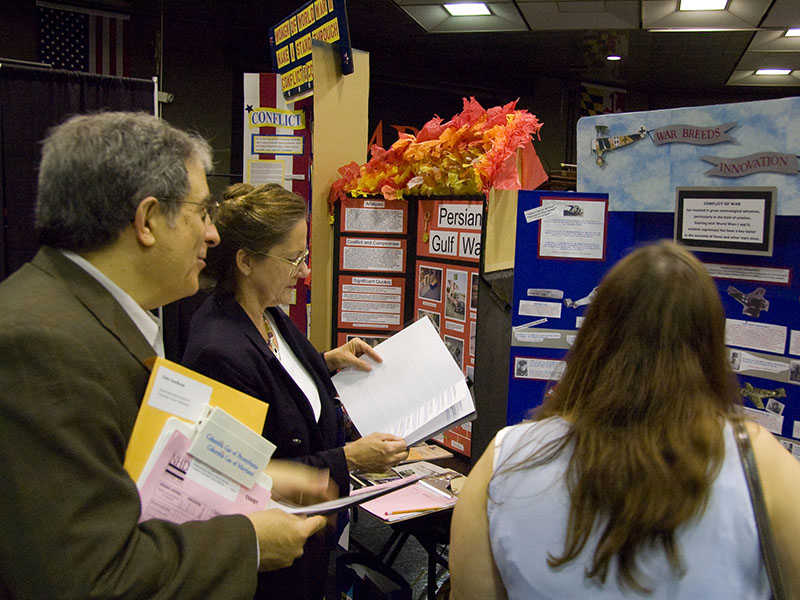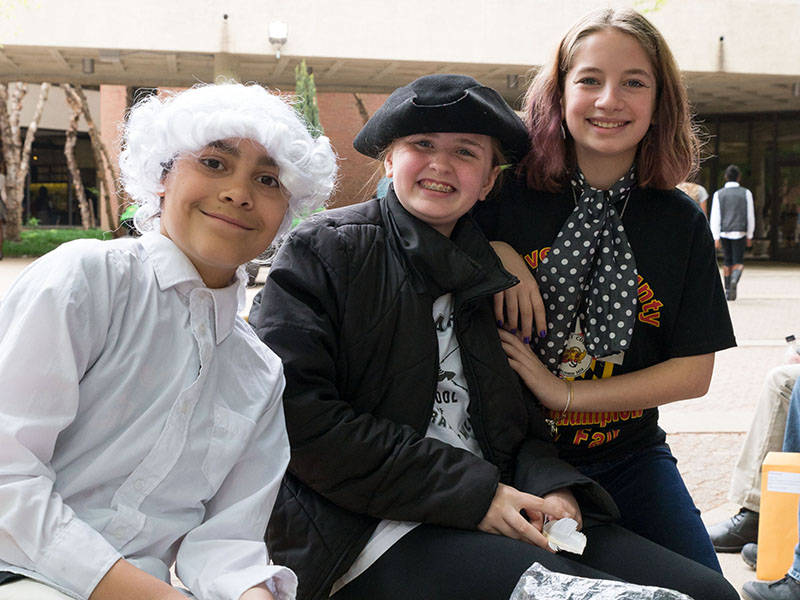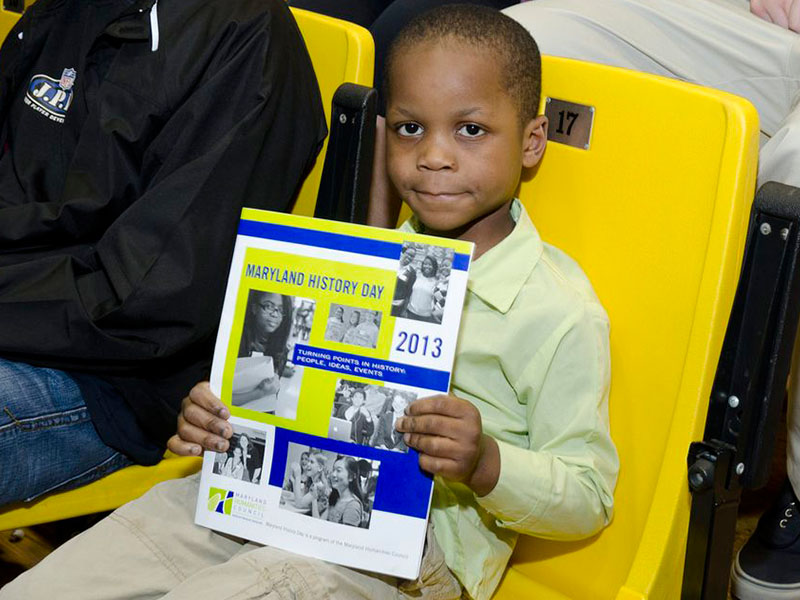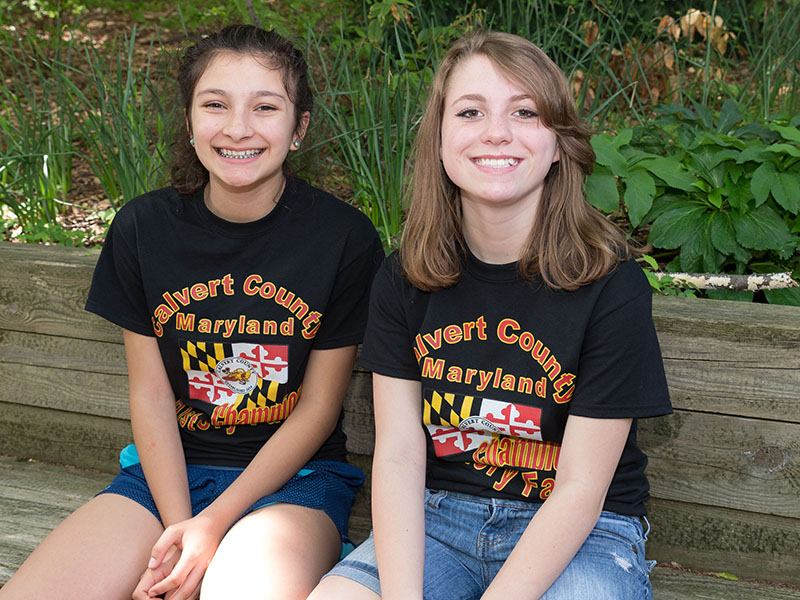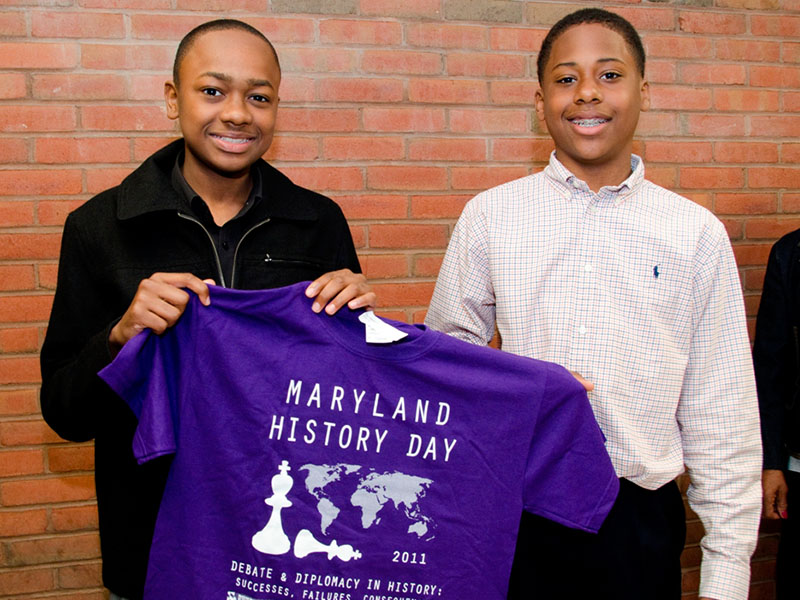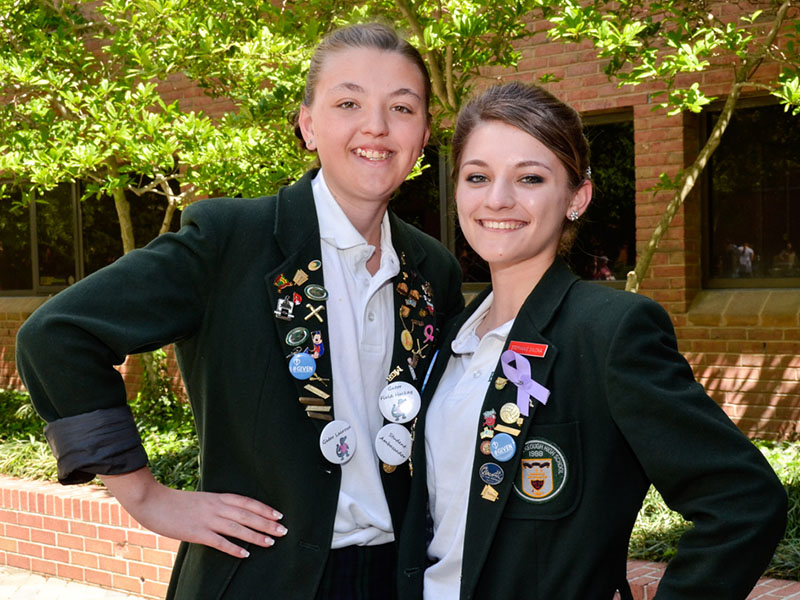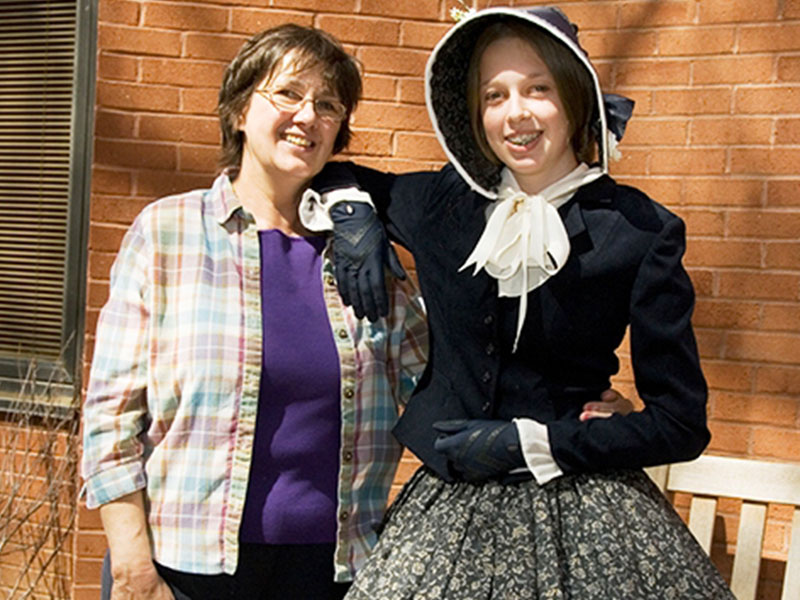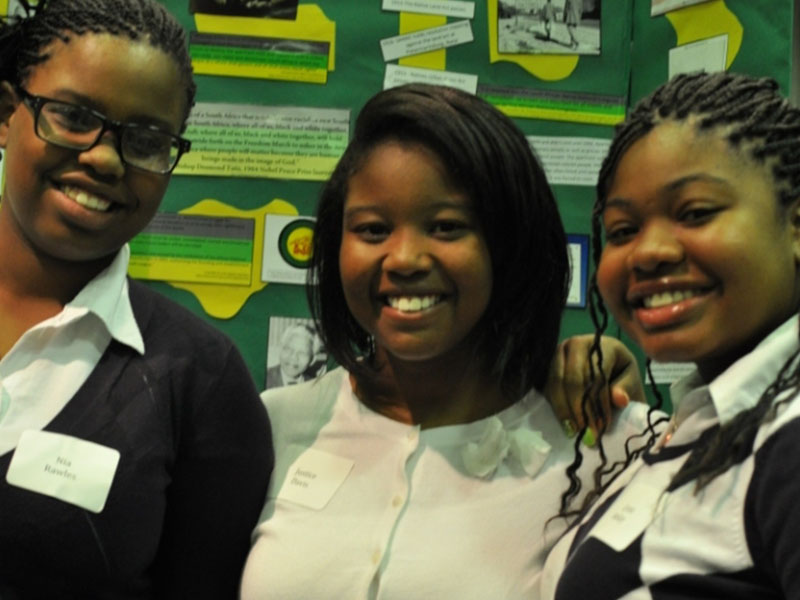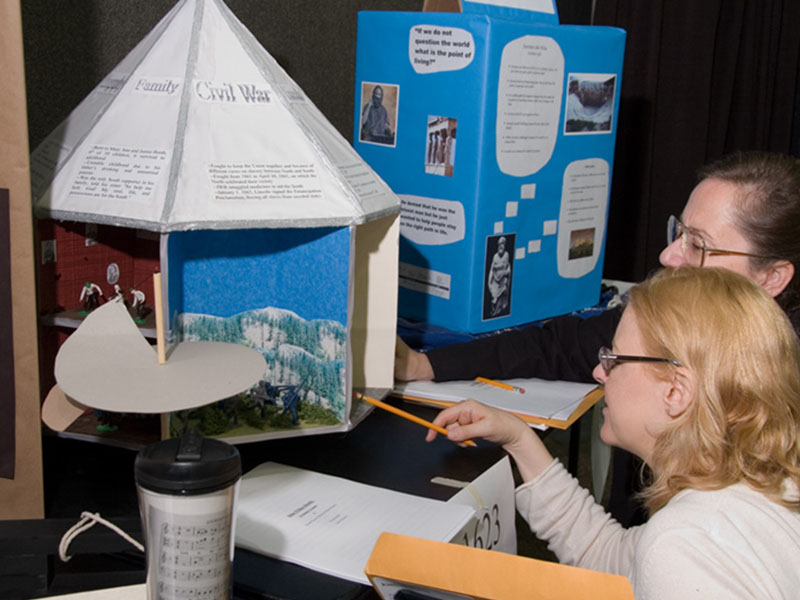Help us promote research skills and a love of learning in students throughout Maryland!
As they progress through competitions at the school, district, state, and national levels, students rely on volunteers like you to evaluate their projects and help them to improve their skills that they have developed throughout the process.
While most judges include humanities scholars, teachers, librarians, and museum professionals, anyone who wants to support students in this exciting learning experience may judge. You can play an important role by volunteering as a History Day judge – reviewing student projects, interviewing contestants, selecting the winners to advance to the national contest, and providing constructive feedback.
The Role of Judges
Maryland History Day judges review student projects, interview students, rank projects and provide feedback through the rubric forms. Judges impact every part of History Day, by being the main point of contact for the students during their contest experience. For their time, judges gain a connection with young historians, learn about new History topics, and serve their community.
Judges can volunteer at the Maryland State contest in the spring, at one of the district competitions in February & March, and at the National Contest in June. Judges are responsible for going through a short training process, reviewing student materials, and showing up for the interview times.
Time Commitment
Judges must complete training to ensure they’re ready for the contest! Our online training can be completed at your own pace and will take less than an hour to complete.
The time you spend in advance of the contest date will depending on the category you select to judge. Judges in prejudged categories (papers, websites, documentaries) will receive their assignments two weeks before the contest and spend approximately 4 hours reviewing project, and about 1 hour meeting with their judge team. Judges in exhibit and performance categories should expect to spend 30 minutes to 1 hour reviewing student’s process papers and bibliographies in preparation for the contest.
At the contest, all judges will arrive at UMBC by 8:20 and will interview students for 2 hours. Most judges in prejudge categories will be finished by 11:30, while exhibits and performance judges may need to stay until 12 to finish ranking and writing comments. Judges who volunteer for a final round will view, rank, and write comments from 1:30-2:30 p.m.

